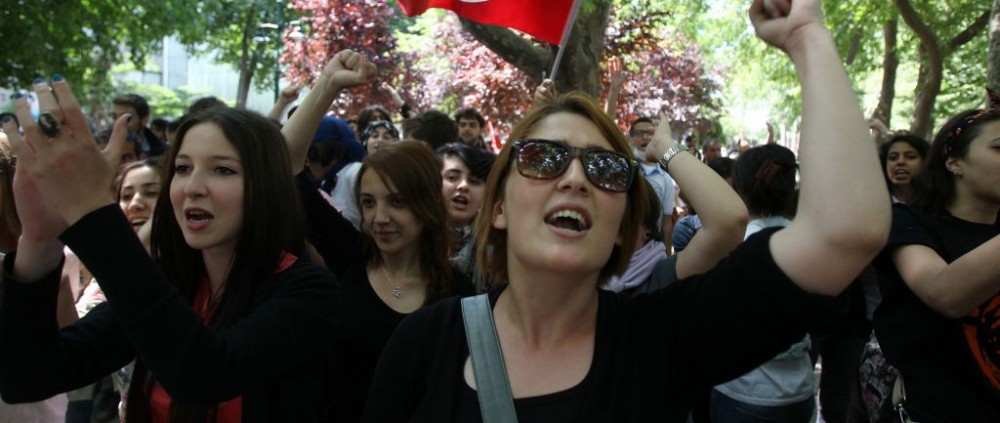During my youth there were quite a few important and groundbreaking women in the music industry, such as Nina Hagen, Siouxsie Sioux, Pauline Black, Chrissie Hind, Poly Styrene and Marianne Faithful. But at the time, for me, none were as exciting and important as Lesley Woods (vocals and guitars) and Jane Munro (bass) of the Au Pairs.
The Au Pairs were a ‘new wave’ or ‘second wave punk’ band. They formed in Birmingham and exploded onto the music scene in 1979 with their self-financed single ‘You’ released on a small independent label. The same label also released their follow-up, the fantastic double A-sided ‘Diet / It’s Obvious’ a year later. The song ‘Diet’ has been described as a “masterpiece of feminist rock (and rock full stop)”. The song is one long verse that follows a housewife through her routine and works its way to a vicious, barbed finale where Lesley repeatedly howls “She needs to be tranquilised”. Within a year the band had played lots of gigs across the U.K., including some sessions for the BBC (tracks from those sessions are available on the anthology ‘Stepping Out of Line’, which was released a couple of years ago). Their debut album, Playing with a Different Sex, was released in 1981 on Human Records, and made it to number 10 in the UK album charts.
The band was fronted by Lesley, who was an outspoken advocate of feminism and at the time one of very few lesbians in the music scene who had actually ‘come out’. Music historian Gillian Gaar notes in her history of women in rock that the band mingled male and female musicians in a revolutionary collaborative way as part of its outspoken explorations of sexual politics. The music was danceable, backed up with confrontational lyrics celebrating sexuality from a woman’s perspective. Playing with a Different Sex is considered a ‘post-punk classic’ with strong songs like ‘It’s Obvious’ and ‘Come Again’.
The band’s second album, Sense and Sensuality, was less well received, but contains more great songs like ‘Stepping Out of Line’ and ‘America’. The band broke up in 1983, just before going into the studio to record another album. Lesley went on to form an all woman band called the Darlings, but then left the music industry, as did Jane. The Au Pairs are one of those bands that found their own sound, something that shifts between forms, from reggae to punk and funk. As they explained; “The main criteria was not to use any kind of cliché in the sense we never had a guitar solo as such, that was deemed too masturbatory. And anytime we did have a break it was a rhythm break.” One reason the Au Pairs sound is so distinctive is that Lesley had a unique and astonishing voice. Writing in 1980, Paul Morley said Lesley’s voice “can be everything – solemn, intense, shattered, exuberant, vulnerable”. It’s her voice, he writes, that lifts the Au Pairs “into greatness.”
The politics of the Au Pairs were informed and they passionately spoke out about the treatment of women prisoners in Ireland, domestic violence, American imperialism, heroin, gender and feminism.The Au Pairs period of 1979 to 1982 is the time of The Specials, The Clash’s London Calling, Rock Against Racism, Rock Against Sexism, the women’s peace camp at Greenham Common, the first Gay Pride march in London, and the birth of hip-hop. Au Pair gigs were a flashpoint for information and meaning, there were leaflets given out and the band kept an open backstage in order to meet people. For the band this was part of a movement – “At the time the stuff that we were doing didn’t seem that out of the ordinary, because most of the bands we were gigging with or who were influential at that time also had political and/or feminist lyrics – the Gang of Four, the Slits, the Clash.” The audience was political and they were looking for bands to reflect and amplify their energies. “We’d play to thousands of people, mainly students and all in anger, all wanting to do something”.
Diet
It’s Obvious
Come Again
Stepping Out of Line

